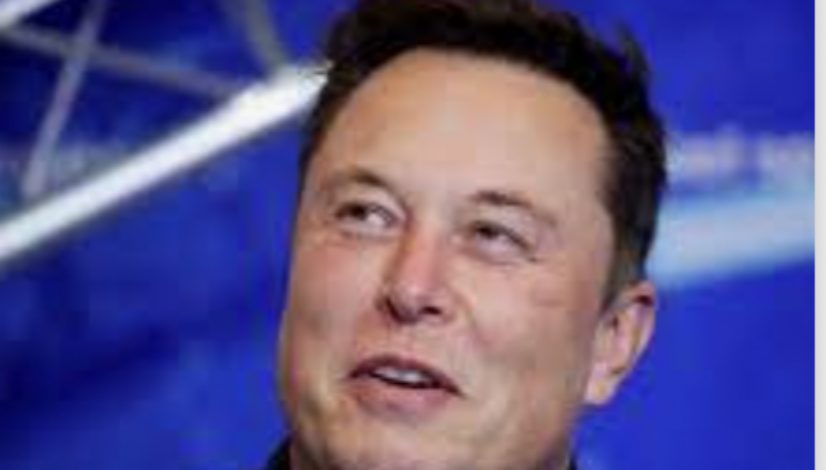
You never know what Elon Musk is going to do next.
The Tesla CEO’s sudden decision to not join Twitter’s board, announced by CEO Parag Agrawal, raises new questions about his ambitions. The agreement to appoint him to Twitter’s board, in light of his purchase of 9.2% of the company’s shares, was confining; he would not have been able to buy more than 15% of the firm’s stock and would have had to behave himself.
That may have been too much to ask.
Elon Musk’s interest in Twitter was widely thought to signal frustration with efforts by social media giants to limit free speech in our country. It was expected that Musk would use his influence at the country to shift policy to allow a freer exchange of opinion on the site and – perhaps – reinstatement of former President Donald Trump, who has been banned for life.
Consequently, the announcement that Musk would be joining Twitter’s board cheered conservatives who consider social media hostile territory, and alarmed liberal elites who have often been targeted by the cheeky entrepreneur.
Thanks to his 81 million followers, Musk has a loud voice; clearly, he is not afraid to use it.
The Establishment was not happy.
Ellen Pao, in a column for the Washington Post, wrote that the ascension to Twitter’s board of Tesla’s CEO is “highly disconcerting” and amounted to a “slap in the face,” arguing among other charges that Musk has misbehaved on the platform and “displays very little empathy.”
Hilariously, she also writes that Musk’s appointment “shows that we need regulation of social-media platforms to prevent rich people from controlling our channels of communication.” I wonder what Wapo’s billionaire owner Jeff Bezos thinks about that.
Why would Pao and like-minded folks be worried? First, because they are terrified that Musk will demand that Twitter lift its ban on Donald Trump, restoring the former president’s most effective bullhorn. With Joe Biden and his Democrat colleagues failing on so many fronts, Trump is a threat.
Second, because Musk is an iconoclast willing to challenge liberal orthodoxy; he is also brilliant and can face down his critics with ruthless efficiency. When Sen. Elizabeth Warren, D-Mass., accuses him of not paying his “fair share” in taxes and calls him a “freeloader,” Musk counters that he has just paid the IRS $11 billion in 2021, the most taxes of any individual in history.
When President Joe Biden excluded non-union Tesla from an event celebrating the future of electric vehicles at the White House, and tweeted that “Ford is investing $11B to build electric vehicles—creating 11,000 jobs across the country [and] GM is making the largest investment in its history—$7B to build electric vehicles, creating 4,000 jobs in Michigan,” Musk tweeted back: “Tesla has created over 50,000 US jobs building electric vehicles & is investing more than double GM + Ford combined.” Touche.
Musk had already used his new platform to needle corporate America by advocating a change in Twitter’s business model. He tweeted, “The power of corporations to dictate policy is greatly enhanced if Twitter depends on advertising money to survive.” With corporations trending woker by the day, limiting their influence has taken on greater urgency.
Musk disdains those who have attempted to dictate what content is allowed on social media platforms. His disregard for guardrails has in fact gotten him into hot water with the SEC; in 2018, after suggesting that he had the funding lined up to take Tesla private, when he did not, he concluded an agreement with regulators that supposedly put a Twitter-sitter overseeing his posts.
That doesn’t seem to have gone well, since only recently he again angered authorities by questioning his 81 million followers on whether he should sell 10% of his Tesla stock in order to pay taxes. The stock plunged 5%.
Musk not only challenges rules, he also questions “conventional wisdom”; indeed, he appears to consider it an oxymoron.
He recently tweeted: “69.42% of statistics are false.” Yes, “facts” are not always what they seem and “misinformation” is often in the eye of the beholder. Claims by dozens of former intelligence officials, for instance, that Hunter Biden’s laptop was likely Russian “disinformation” turned out to be … disinformation.
There are many arenas in which non-conforming opinion is scorned or suppressed – think climate change, for example – but it has been the censorship of contrary views of how to treat COVID-19 that has highlighted the danger of the practice.
Twitter banned Dr. Robert Malone when he raised concerns about the Pfizer vaccine, YouTube banned Sen. Rand Paul, R-Ky., for questioning the efficacy of over-the-counter masks, and when Dr. Simone Gold and her colleagues attested to the success they had treating COVID patients with hydroxychloroquine, she was banned from every major social media site and smeared by the press. All three can point to research supporting their claims.
Imagine: a brand-new virus kills millions of people across the globe and social media titans dare to shut down discourse about possible treatments. It is an outrage – one that may have cost many lives.
Social media is not alone in suppressing views unpopular with the left-wing establishment. The liberal press is equally guilty, but we know where the Washington Post or the New York Times stands. They do not pretend to give everyone a voice.
Liberals in academia, too, limit free speech in our country. A tally by the nonpartisan Foundation for Individual Rights in Education (FIRE) found that last year 111 scholars were targeted by their schools for voicing opinions that were, in most cases, unpopular with the Left.
Elon Musk cannot challenge academia or the liberal press, but he can disrupt censorship by social media. He recently asked his followers whether they think Twitter “rigorously adheres to the principle” that “free speech is essential to a functioning democracy.” Some 70% of two million respondents said no. That is a compelling indictment.
Pao’s piece proclaims that “Elon Musk’s vision of ‘free speech’ will be bad for Twitter.” She may be right, or it could be that Americans are hungry for a platform unafraid to contradict “approved” narratives and willing to incur the wrath of the elites.
Musk may have decided that serving on Twitter’s board would limit his influence. He is not good at playing by the rules; several skirmishes with the SEC have proved the point.
Already he had lofted significant possible policy changes into the Twitterverse, like adopting an “edit” button, putting management in an awkward place. Agrawal embarassingly announced the company might adopt the new feature, but that the concept was already in the pipeline. Business decisions of that sort are usually made in the board room, not on Twitter.
But the biggest constraint imposed by board membership was the restriction on future stock purchases. Those wanting Musk to turn Twitter into an open “public town square,” as he has described it, will hope his reversal means he wants to own more than 15% of the stock.
Given that Musk is the richest man in the world, with a net worth estimated at $275 billion, anything is possible.
https://www.foxnews.com/opinion/elon-musk-scares-liberals-twitter-free-speech-liz-peek
Published on Fox News





